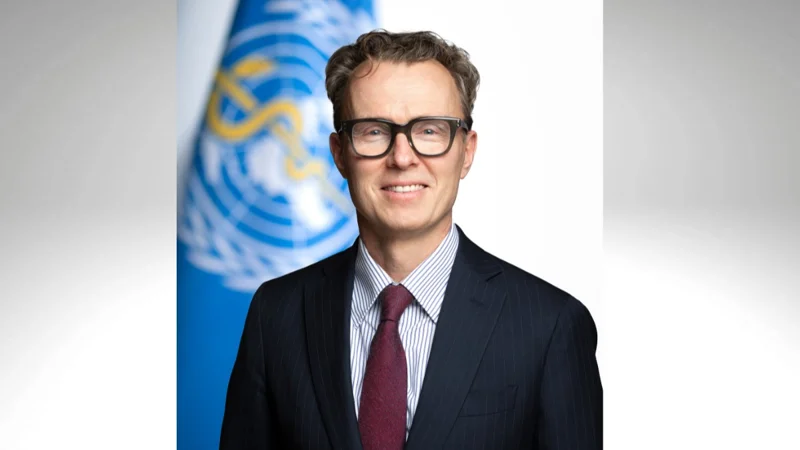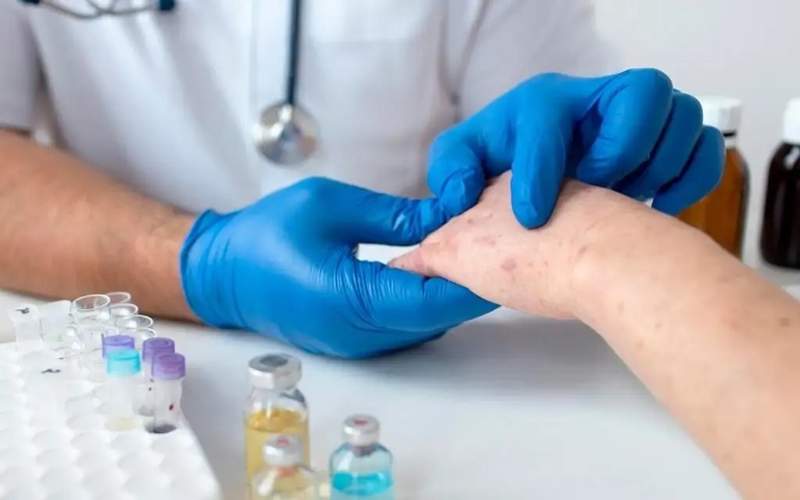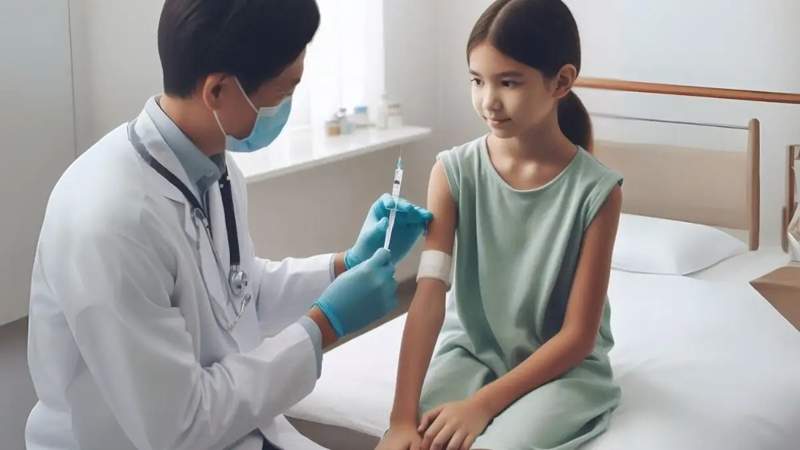Why immunization equity matters more than ever - interview with Robb Butler
With European Immunization Week underway, Kazinform News Agency interviewed Robb Butler, Director of the Division of Communicable Diseases, Environment and Health at the WHO Regional Office for Europe, about how vaccines are shaping health systems across the region. He shares insights on progress made by Kazakhstan, remaining challenges, and why this year’s theme “Immunization for all is #HumanlyPossible” is more than just a slogan.

Mr. Butler, let’s begin with the big picture—what is European Immunization Week, and why is it important?
– European Immunization Week, held in coordination with World Immunization Week, is an annual opportunity to highlight the life-saving power of vaccines. It’s a time to raise awareness, engage with partners and communities, and reflect on both our progress and our remaining challenges. This year’s theme, “Immunization for All is Humanly Possible,” reminds us that closing immunization gaps is not just a public health aspiration—it is entirely achievable.
Despite decades of progress, hundreds of thousands of children across the WHO European Region, and millions worldwide, still miss out on essential vaccines each year. Too many older adults also go unprotected against diseases like influenza. Immunization Week is a rallying call to ensure equitable access to vaccines for everyone, at every stage of life.
Importantly, this week also highlights our regional commitment to the European Immunization Agenda 2030 (EIA2030)—the backbone of our vision to eliminate vaccine-preventable diseases and strengthen immunization systems in every country. Aligned with the global Immunization Agenda 2030, this strategy was endorsed by all 53 Member States of the WHO European Region, including Kazakhstan, and focuses on equity, resilience, and innovation in immunization.
How is Kazakhstan responding to these challenges, especially in light of recent outbreaks of measles and pertussis?
– Kazakhstan has responded with urgency and purpose. The Ministry of Health and government authorities have implemented several strong measures to contain these outbreaks and improve national immunization performance, including catch-up immunization for all children under 18 years of age who missed routine vaccination and awareness-raising efforts to educate the public on measles and other infectious diseases. Thanks to these efforts, measles have stabilized.
However, the job isn’t done. We must continue identifying and closing immunity gaps—particularly among vulnerable groups—while investing in vaccine safety monitoring, strengthening cold chain infrastructure, and using digital tools to modernize data systems. Measles and rubella elimination is absolutely within our reach, but it demands sustained commitment.
Kazakhstan has also launched the HPV vaccination campaign. What does this milestone represent?
– This is a landmark achievement. The introduction of the HPV vaccine represents Kazakhstan’s commitment to a future free of cervical cancer—a vaccine-preventable disease. Over 90% of cervical cancer cases can be prevented with timely HPV vaccination, and the leadership of the Ministry of Health in rolling this out nationwide is truly commendable.
Also important to note is that Kazakhstan has been generous in sharing its experience. The country hosted delegations from Tajikistan and Belarus to demonstrate their approach to HPV vaccine rollout. This kind of cross-border collaboration is exactly what we need to accelerate progress across the region.

Education plays a crucial role in building trust in vaccines. We’ve heard Kazakhstan is piloting a school-based initiative to improve vaccine literacy. Could you tell us more about this approach and why investing in education is important for immunization?
– You’re absolutely right—education is foundational to sustaining vaccine confidence in the future. One of the most exciting developments in Kazakhstan is its investment in health education at the school level. The country is piloting an innovative digital learning tool developed by WHO called “Immune Patrol”, which introduces children aged 10–12 to the basics of how the immune system works, how vaccines protect us, and how infections spread. It also teaches them to check sources when looking for information online and to be alert to possible misinformation.
What makes this initiative significant is its approach: It doesn’t just deliver facts—it’s interactive, engaging and helps children understand why immunization matters in their daily lives. And because it's being implemented in pilot schools across diverse regions, it helps ensure equitable access to health information from an early age. By embedding vaccine literacy into the education system, Kazakhstan is creating a generation of young people who are better informed, more confident in science, and more empowered to make healthy decisions. It’s a long-term investment in public health—and it’s already showing promise.

What are the next steps for Kazakhstan and the broader European Region when it comes to immunization?
– First, we must close immunization coverage gaps and ensure immunization services are provided equitably to all. Outbreaks happen when a contagious vaccine-preventable disease reaches a population subgroup that is under immunized. Several factors can contribute to gaps in immunization coverage, including in some contexts inequitable access to vaccination services. Everyone must have access to vaccines, no matter where they live or what their background is.
Second, we need to improve how we communicate—especially by training healthcare workers in interpersonal communication about immunization, so they can build trust and effectively address concerns. European Immunization Week reminds us that vaccination is not just about preventing disease today—it’s about building stronger, more resilient health systems for the future. Kazakhstan’s commitment, innovation, and willingness to collaborate exemplify the way forward.
Any final message to the media and the public during EIW 2025?
– Vaccination is more than a medical service. It’s a human right, a public good, and a pathway to a healthier society. Journalists play a vital role in helping people understand that. Your work helps counter misinformation, raise awareness, and inspire action. Let’s keep the momentum going. With continued partnership, investment, and community engagement, immunization for all truly is humanly possible.

